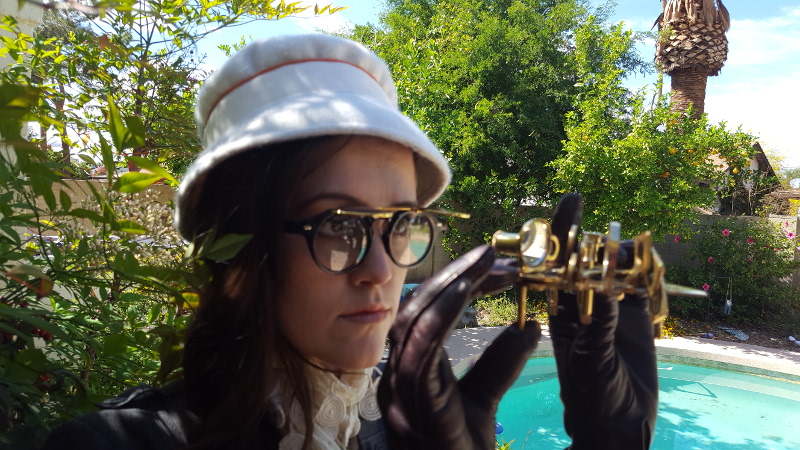Published on Tuesday, 05 May 2015 20:03
By Vaughn Treude
I am pleased to announce that at long last, my second novel, Fidelio's Automata, is for sale on Amazon. It's currently in e-book format only, but I also intend to release a print version, hopefully within the month. As much as I love my Kindle, there's something about the experience of a real physical book that can't be equaled.
This novel has been a long time in coming. I had hoped to complete it well over a year ago. It has actually been finished since the beginning of this year, but I have a habit of pursuing too many simultaneous projects, so everything gets delayed. The good side of this erratic creativity is that I've completed two more works that I hope to release before the end of next year – one a military adventure novella called Diana's Fury, and the other an urban fantasy novel called Looking for Daddy. Then there's "One Good Man," the musical comedy that Arlys and I have been working on. We've added three more scenes to the three we've already written. We'll be staging the new ones as part of a playwright's showcase here in Phoenix, which is tentatively scheduled for late June. [Editor's Note: Scene 4, Hate Your Shoes, was performed as part of the second "Out Loud" showcase in March of 2016.]
Now back to Fidelio – it's my first foray into steampunk, which was inevitable because the moment I encountered that genre I was hooked. For those who don't know it, steampunk is historical science fiction, usually set around the turn of the 20th Century, which in Britain was the Victorian era. Here in the US, it was known as the Gilded Age. It was a fascinating period when so much of the technology we now take for granted – electricity, the telephone, the automobile, and so on – was first developed. There was even an early version of the computer, called the Babbage Analytical Engine. Steam, of course, refers to the dominance of steam power at that time. The “punk” suffix is derived from another sci-fi genre called “cyberpunk,” and it's come to indicate anything that's been changed or distorted in a fanciful way.
Fidelio's Automata is about two men with very different backgrounds and philosophies who become friends, working toward a common goal. Fidelio Espinoza is a left-anarchist and a scientific genius, who hails from an aristocratic Cuban family. He's a gay man at a time when homosexuals had to carefully conceal their identities, for fear of prison or worse. Hank MacMillan is a cowboy from the Arizona Territory, who becomes a devout Christian and pacifist after a traumatic experience in the Spanish-American War. Uneducated but practical and quick-witted, Hank sees the potential in the 'automaton' Fidelio has created. Though it's difficult for him to accept Fidelio's lifestyle, they share the common values of fair play for all and helping the downtrodden.
One of the most enjoyable things about writing Fidelio was involving real historical people in the story. This being an alternate history, things don't happen quite as they did in real life. For example, McKinley survives the assassination attempt, so Theodore Roosevelt does not ascend to the Presidency. Nonetheless, I've tried to be true to what a know of the characters, in particular the famous rivals Nikola Tesla and Thomas Edison. Two lesser known historical characters are the Marquis de Mores and his wife Medora, who figure prominently in the story of my home state. This fascinating couple deserves more recognition, though sadly, in actuality the Marquis was murdered before the events of the book take place. A few well-placed historical changes induced them to return to North Dakota and restart their failed meat-packing business, thus avoiding the Marquis' final misadventure in North Africa.
I hope you'll give Fidelio's Automata a try. It's got all the mandatory steampunk elements – airships, goggles, steam engines and clockwork spiders – plus adventure, intrigue, and a touch of humor.


